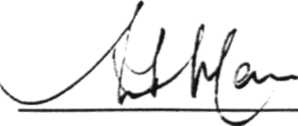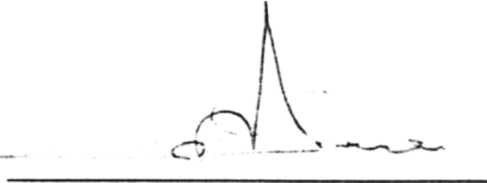CASE NO. FA 9/96 ANDREAS VAATZ versus THE MUNICIPALITY OF WINDHOEK STRYDOM, J.P. et MTAMBANENGWE J, et HANNAH, J 1997/02/14 NEGLIGENCE Damage - Even assuming a breach of statutory duty plaintiff must still prove loss occasioned by the breach if he is to recover damages.
CASE NO. FA .9/96 IN THE HIGH COURT OF NAMIBIA In the matter between

ANDREAS VAATZ versus THE MUNICIPALITY OF WINDHOEK APPELLANT RESPONDENT
CORAM: STRYDOM, J.P. et HANNAH, J. et MTAMBANENGWE, J. Heard on: 1997/02/10 Delivered on: 1997/02/14 JUDGMENT HANNAH, J.: This is an appeal from a decision of Gibson, J. granting judgment in favour of the plaintiff/respondent in the sum of N$7 032 with costs. In order to show the issues in the case I will first state the facts. Daniel and Leon Marais were the owners of Portion "S" of Windhoek Town and Townlands no. 31, measuring 26 3963 hectares ("the property") . The property is situated within a local authority area and the respondent is the local authority within whose area the property is located. The respondent was entitled to, and did, levy rates and taxes on the property which rates and taxes were payable by the Marais. However, over a period of eight years the Marais failed to pay them as they fell due despite monthly accounts being sent to their postal address in South Africa.
A "final" notice was sent in June, 1992 when the amount owing was N$6 421.21 but there was no response. By July, 19 93 the amount owing was N$7 667.65. In January, 1993 the Marais entered into an agreement to sell the property and in July of that year the appellant, in his capacity as a conveyancer, was responsible for preparing a deed for the registration of the transfer of the property. This brings me to section 78 of the Local Authorities Act, no. 23 of 1992, which provides: "78. The registrar of deeds shall not register a transfer of any immovable property within a local authority area, unless there is produced to him or her a conveyancer's certificate, certifying - that all rates, fees or charges leviable in respect of such immovable property under this Act have been paid in respect of such immovable property; or that such immovable property is not contained in the main valuation roll or any other register held by the local authority council." Pursuant to section 78 the appellant prepared and signed a conveyancer's certificate certifying that all rates, fees and charges leviable in respect of the property had been paid and the Registrar of Deeds effected transfer of the property to the purchaser. The certificate was incorrect. As mentioned, a sum of N$7 667.65 was outstanding in respect of rates and taxes. And the appellant conceded at the trial that he was negligent in signing a certificate which gave incorrect information. In August, 1993 the respondent instructed its attorneys to sue the Marais for the
outstanding amount but then there was a change of heart. It successful though for reasons which are not altogether clear judgment was entered for N$7 032 only. I suspect that there was an arithmetical error on the part of the judge but as the respondent has not sought to cross-appeal we are not concerned with this. The respondent sought to hold the appellant liable for the outstanding rates and taxes on three bases. We are not concerned with the first two as they were rejected by the learned judge in the Court a quo and, as I have said, there is no cross-appeal. The third, with which we are concerned, was that the respondent suffered loss as a result of a breach by the appellant of a duty of care owed by the appellant to the respondent. The learned judge held that the appellant was liable on this basis and the appellant then noted the present appeal. Various grounds of appeal are set out in the notice of appeal but in his argument Mr Maritz, for the appellant, has, I think sensibly, confined himself to one. The appellant acknowledged before the Court a quo that he owed a duty of care to the respondent and that he was in breach of that duty by furnishing an untrue certificate to the Registrar of Deeds with the result that transfer took place. The point argued by Mr Maritz was that the respondent failed to prove that the appellant's negligent conduct caused the respondent damage or, if it had, the extent of such damage.
was decided to sue the appellant instead and in March, 1994
proceedings were launched. These proceedings were
Mr Maritz submitted that the purpose of section 78 is clear. Its purpose, he submitted, is to prevent the transfer of immovable property until all local authority rates, fees and charges have been paid so as to give the local authority some form of security for the recovery of outstanding rates, etc. Mr Maritz then submitted that what the respondent lost as a result of the appellant's negligence was the opportunity to levy execution on the property in the event of its obtaining judgment against the Marais for the arrears and that, in his submission, was all it lost. It certainly did not lose its right of action against the Marais. The only possible way in which the appellant's negligent conduct could have affected the respondent's position is with regard to the recoverability of the rates and taxes. If, for example, there was evidence that the Marais were untraceable or were mere men of straw then it could be inferred that the only way in which the respondent could recover outstanding debts from them would be by executing on the property. But, and this is the crux of Mr Maritz's submission, the respondent adduced hardly any evidence concerning the Marais. Monthly accounts had been sent to them at an address in South Africa over a period of eight years and a final notice was sent in June, 1992. But as none of these was sent by registered post it is not known whether any were received. And even if they were received it by no means follows from the lack of response that the Marais were unable to pay. The only witness called by the respondent
knew nothing of the circumstances of the Marais and there was no evidence that they would not, or could not, have paid the outstanding sum of N$7 667.65 if faced with a letter before action, a summons or a judgment. And so, in the submission of Mr Maritz, on the evidence before the Court a quo there was nothing to show that the appellant's negligence caused the respondent to lose the sum owed by the Marais or, for that matter, to show that that sum had even been lost at all. The learned judge in the Court a quo was therefore wrong to find in the respondent's favour. It is trite law that it is essential to delictual liability that the defendant's wrongdoing caused the plaintiff damage and it is equally trite law that the plaintiff must adduce evidence from which, on a balance of probabilities, a connection between the two may fairly be drawn. Mr Smuts, for the respondent, did not seek to argue otherwise nor, as I understand it, did he seek to submit that the argument presented by Mr Maritz was wrong insofar as it applies to a situation where a defendant is in breach of a duty to take care imposed by common law. Mr Smuts' submission was that the appellant was in breach of a statutory duty imposed by section 78 and he argued that in these circumstances different considerations applied. I will come to his argument shortly. Before I come to Mr Smuts' argument I must refer to one further matter which strengthens Mr Maritz's submission that the respondent failed to prove that it suffered any loss as a result of the appellant's negligence. When he gave
evidence the appellant produced the agreement of sale between the Marais and their purchaser from which it appears that the Marais were alive and well and in Windhoek in January, 1993 and that their domicilium citandi et executandi was a physical address in South Africa. The appellant also produced, without objection from the respondent, correspondence between himself and the Marais' mortgagee who was a bank. From this it appears that the Marais' mortgage exceeded the sale price by N$7 000 but the mortgagee was content to release the title deeds to the property and permit the sale to proceed and then look to the Marais for payment cf the excess. In other words, there was evidence not only that the Marais were traceable but, at least in the view of their mortgagee bank, they were probably good fcr NS7 000. But apart from showing that the Marais were traceable the foregoing evidence showed, at least on a balance of probabilities, that had the property not been transferred it would have provided the respondent with no security whatsoever. Mr Smuts conceded that a local authority has no preferential claim for outstanding rates and taxes and its claim for N$7 667.65 would therefore have ranked behind the mortgagee's claim. In the absence of evidence to the contrary, the price for which the property was sold must be taken to be a fair reflection of its value and this means that even had the respondent been in a position to levy execution on the property there would have been no equity left after the mortgagee had taken its share. The property with its negative equity provided the respondent with no
security at all. And what you do not have you cannot lose. Mr Smuts sought to uphold the learned judge's finding by adopting what I can only describe as a novel, if not bizarre, approach. He submitted that the appellant was guilty of a breach of a statutory duty imposed upon him by section 78 and as this breach led to the property being transferred when it should not have been transferred the appellant rendered himself liable to pay all outstanding rates and taxes. Mr Smuts argued that the principal objective of section 78 was the provision of a blocking mechanism so as to prevent transfer of a property when rates and taxes are outstanding. The section was intended to create a situation whereby upon sale cf a property both parties to the sale will have a strong, compelling incentive to ensure that rates and taxes have been paid. If they have not the sale cannot be completed. And when that objective or purpose is thwarted by furnishing an incorrect certificate the conveyancer in question must bear the brunt. He becomes liable for the outstanding rates and taxes. Dealing briefly with Mr Smuts' submission with regard to the objective or purpose of section 78 it may be that Parliament: did have in mind the idea of creating an incentive but in my view that was certainly not the principal purpose of the section. The principal purpose of enacting section 78 was clearly to provide a local authority with, in most cases, some security should it have to sue the defaulting rate or tax-payer and levy execution. That situation can, of course, arise at any time and is not linked in any way to
the time when a property is being sold. Indeed, in the ordinary course of events a local authority would not wait until a property is being sold in order to recover outstanding rates and taxes. The principal purpose of the section is to prevent a debtor selling his property behind the local authority's back and thereby depriving it of its security. Turning now to the remainder of Mr Smuts' submission, I have strong doubts whether section 78 does impose any statutory duty on a conveyancer but even assuming that it does Mr Smuts' submission is, in my view, doomed to failure. Mr Smuts sought to derive some assistance from the South African case of Da Silva and /Another v Continho, 1971(3) SA 123 (A) . That case was concerned with a breach of a statutory duty imposed by the Motor Vehicle Insurance Act, 29 of 1942 and the Court held that the Act did impose a duty giving rise to an action for damages in respect of any loss occasioned by its violation. And there lies the fallacy in Mr Smuts' argument. Whether there is a breach of a statutory duty or a duty imposed by common law the plaintiff must still prove that he has been injured by the breach if he is to recover damages. He must prove a loss occasioned by the violation. And on the evidence before the Court a quo the respondent proved none. With the greatest respect I can see no merit in Mr Smuts' submission. In my opinion, the argument presented by Mr Maritz is unassailable. The respondent failed to adduce evidence that the appellant's negligence caused it to suffer loss in the
sum of N$7 667.65 or any sum. The evidence did not even show that there was an increased risk that that sum or any sum would be lost as a result of the appellant's negligence. In my judgment the respondent's claim should have been dismissed with costs. For the foregoing reasons the appeal is allowed, the order made in the Court a quo is set aside and there is substituted therefor an order dismissing the plaintiff's claim with costs and the respondent is ordered to pay the costs of this appeal. HANNAH, JUDGE I agree

![]()


I agree


ON BEHALF OF THE APPELLANT: ADV J D G MARITZ SC Instructed by: A Vaatz
ON BEHALF OF THE RESPONDENT: Instructed by: MR SMUTS Lorentz & Bone